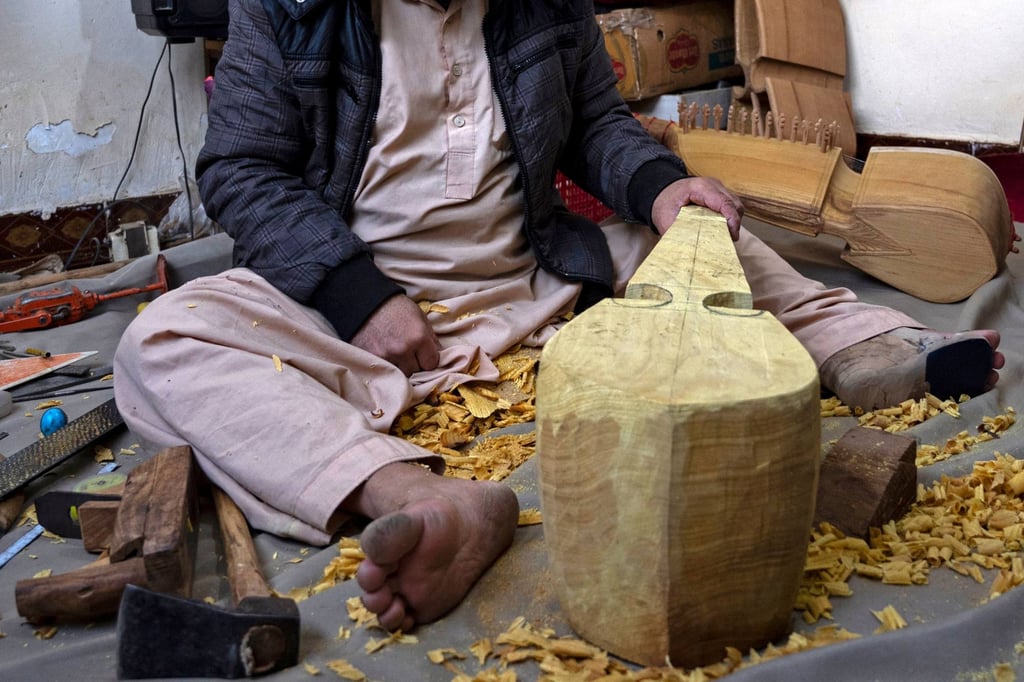Wood shavings littered the floor of Sakhi’s cramped workshop in the Afghan city of Herat as another rubab, the national musical instrument of his homeland, took shape under his deft hands.
Sakhi has crafted two rubabs a month for decades, and he refuses to set down his tools even as a Taliban crackdown strangles music in Afghanistan.
“I know only this work and I need to make money somehow,” says Sakhi, surrounded by rubabs in different stages of completion.
But far more important to him than money is the “cultural value”, says the craftsman in his fifties, whose name has been changed for his safety along with those of others interviewed.

“The value of this work for me is … the heritage it holds. The heritage must not be lost,” he says.
Unesco agrees; in December the United Nations’ cultural body recognised the art of crafting and playing the rubab as intangible cultural heritage in Afghanistan, Iran, Tajikistan and Uzbekistan.
